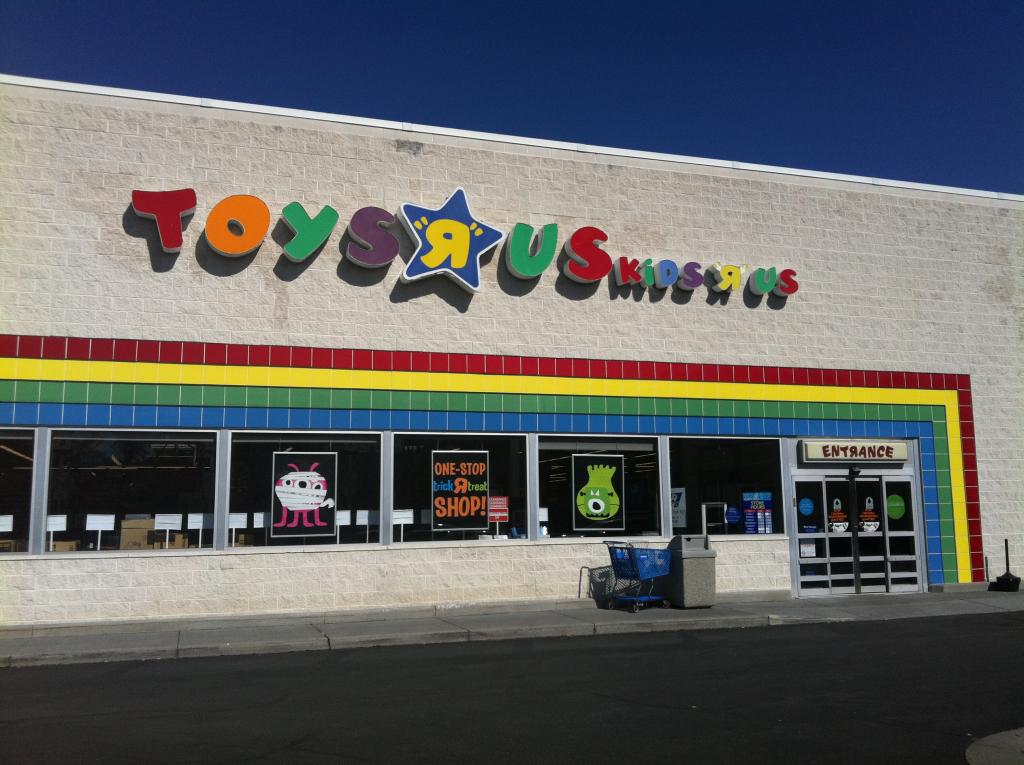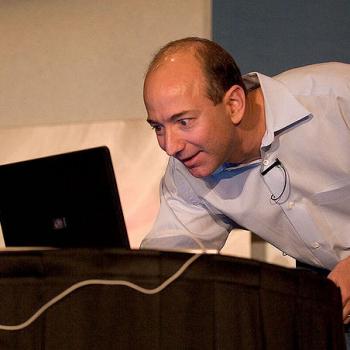![https://commons.wikimedia.org/wiki/File%3AChicago-bean-329248_1280-2.jpg; By https://pixabay.com/en/users/gautherottiphaine-230124/ [CC0], via Wikimedia Commons](https://wp-media.patheos.com/blogs/sites/533/2016/05/Chicago-bean-329248_1280-2.jpg)
So Amazon is inviting bids for a “second headquarters”; the HQ2, as they’re calling it. You can view the RFP directly on their website.
What are their objectives, their motivations?
This is what they say they want:
- Metropolitan areas with more than one million people
- A stable and business-friendly environment
- Urban or suburban locations with the potential to attract and retain strong technical talent
- Communities that think big and creatively when considering locations and real estate options
But how will this play out?
Bidding wars
You know that Chicago/Illinois are going to town on this one. If there’s one thing that can unite Republicans and Democrats, even Rauner and Madigan, it’s bidding for the prize of a major corporate employer. Sure, for all the small and medium-sized businesses, it’s one tax after the next, but the large corporations practically dictate the terms of their tax breaks — and it’s not just breaks on corporate tax and property tax but it’s credits that represent the taxes that their employees pay.
Is Amazon so flush with cash that they’re indifferent to these bidding wars? Or are they happy to take whatever cash a city and state are willing to send their way? Or, alternately, do they really have a location in mind but are claiming to be in doubt in order to enhance the “deal” that they hope to get from this predestined city?
The RFP has actually fairly little in the way of concern for the education level of the potential workforce, or the cultural opportunities of the city. But it has a lot of concern for information on incentives — everything from tax incentives, to opportunities to be given the land directly, or to have the city do all of the infrastructure work free-of-charge. And they’re asking city planners to provide specific sites — e.g., vacant office buildings or greenfield sites. (Are they open to brownfield sites, contingent on the city doing all the necessary work to transform them into immediately-buildable locations? It’s not clear to me, but I imagine that, if so, they would have mentioned this specifically.)
Where will the executives live?
Presumably Bezos himself won’t be relocating. Will any of the other executives be relocating? I have the impression that the practice of separating out the c-suite from the masses is growing (e.g, locally, Caterpillar), and that location decisions seem to be quite different if you’re looking at a place for the c-suite to live, and where they and their wives (fine, strictly speaking, spouses) can enjoy the lifestyle of the wealthy. If it’s to be their own home, they’re less likely to be swayed by tax giveaways.
Will it be a Seattle clone?
The RFP says that one consideration is “Cultural Community Fit”:
The Project requires a compatible cultural and community environment for its long-term success. This includes the presence and support of a diverse population, excellent institutions of higher education, local government structure and elected officials eager and willing to work with the company, among other attributes.
But that’s not much to go on, and could be interpreted as being a matter of being “left coast” liberal in politics or an oblique way of saying that they want government officials to bend over backwards to please them.
Presumably “diverse population” rules out Tulsa. But is that a code word for “we want Asians and gays to feel at home”? Is a place where diversity comes in the form of “lots of blacks, lots of Hispanics” not of interest?
In part, I suppose, this depends on how isolated the executives are. Are they are so used to their own little world that they think every place should be like that, or do they see the opportunity to locate somewhere that’s culturally different from Seattle, so as to get a different type of workforce? Or do they think that the “tech workforce” always wants to live in Seattle-clones, so there’s no point in thinking beyond that?
Do they want to be a big fish in a small pond, or do they want to be where all the popular people are?
There are a lot of people assuming that somewhere on the East Coast has a lock, due to the fact that there are so many tech employers, heck, so many employers there in general, already. The workforce would already live there. Piece of cake.
But those same cities would be far less eager to trip over themselves offering incentives to Amazon, or, more generally, less willing to accommodate Amazon’s demands. They may even expect Amazon to be a dutiful corporate “partner” accommodating the city’s demands.
How much do costs matter?
I have the impression that direct land costs don’t matter much, if they’re figuring on getting the local government to give them the land. What about housing costs for their workforce? Obviously, the greater the “quality of life,” the more expensive the housing will be. And a site that’s close to mass transit and freeways and a convenient commute for employees with diverse lifestyles (young urbanites and older workers with families) is, well, having your cake and eating it too.
What does the Tribune say about a Chicago bid?
One advantage for Chicago is the availability of viable development sites. Within North America’s most densely populated cities, there are relatively few big, well-located sites that could accommodate Amazon’s vision.
Chicago candidates could include almost 60 acres of riverfront land developer Sterling Bay has been assembling on the North Side — which includes the former A. Finkl & Sons steel plant site — and Related Midwest’s vacant, 62-acre parcel along the river in the South Loop. Both developers already are drawing up multibillion-dollar developments of those sites.
Another large, mostly vacant site is the 49-acre former Michael Reese Hospital property in Bronzeville, which had once been proposed as the Olympic village as part of Chicago’s bid for the 2016 Summer Games. A group of developers, including Draper & Kramer and Farpoint Development, has been chosen by the city to redevelop the site south of McCormick Place. . . .
Amazon “is going to follow the money,” said James Shein, professor of strategy at Northwestern University’s Kellogg School of Management.
But incentives aren’t the only factor. Corporations tend to relocate where their top executives want to live, Shein said. “The living style is excellent here, and that’s critical,” he said. . . .
Once the new campus is created, executives can choose to have their teams located in Seattle, the new headquarters, or both, the company said.
Yeah, right. Does Chicago really have a shot?
To be honest, I would be surprised. I mean, sure, the math is fine, there are a lot of things that Chicago has going for it, headquarters-wise. We’ve got our own universities, between the University of Chicago, and IIT (not to be confused with ITT), and UIC, Northwestern, and Loyola, though none of them really have a “tech startup” vibe to them. We can check off all the boxes for “cultural institutions” and “diverse people.” Yes, we have winter, but we are at minimal risk of natural disasters, and we’ve got Lake Michigan.
But I don’t see someone with no connection or affinity to the Midwest (born in Texas, lived in Florida, school at Princeton, early career in New York before moving to Seattle, per Wikipedia) making such a decision. He’s probably that sort of person, after all, who uses “flyover country” unsarcastically.
Bidding Wars, again.
Even if only a few of these assumptions about Amazon’s interests were correct, they would limit Amazon to only one to three places. Amazon already knows that, and given what we know about the company and the site selection industry, it most likely has a favorite.
If one assumes that Amazon has already made a choice about the location of its second headquarters, this game looks rather grim for any place that chooses play. Instead of simply announcing the decision it has most likely already made, Amazon has opted to create the illusion of a competition. It is hard to fault Amazon for that. It is a highly competitive, publically traded company with a fiduciary responsibility to get the best deal for its shareholders. Amazon’s faux competition will lure one otherwise enviable place into handing over a huge amount of its taxpayers’ money to a fabulously wealthy corporation for something that place could have gotten for free.
That’s from a Brookings article which seems to sum up the state of play pretty well — except that it fails to mention that, to pay for these continual give-aways to corporate giants, the little guys, the small businesses and individual taxpayers, get squashed.
Image: https://commons.wikimedia.org/wiki/File%3AChicago-bean-329248_1280-2.jpg; By https://pixabay.com/en/users/gautherottiphaine-230124/ [CC0], via Wikimedia Commons













